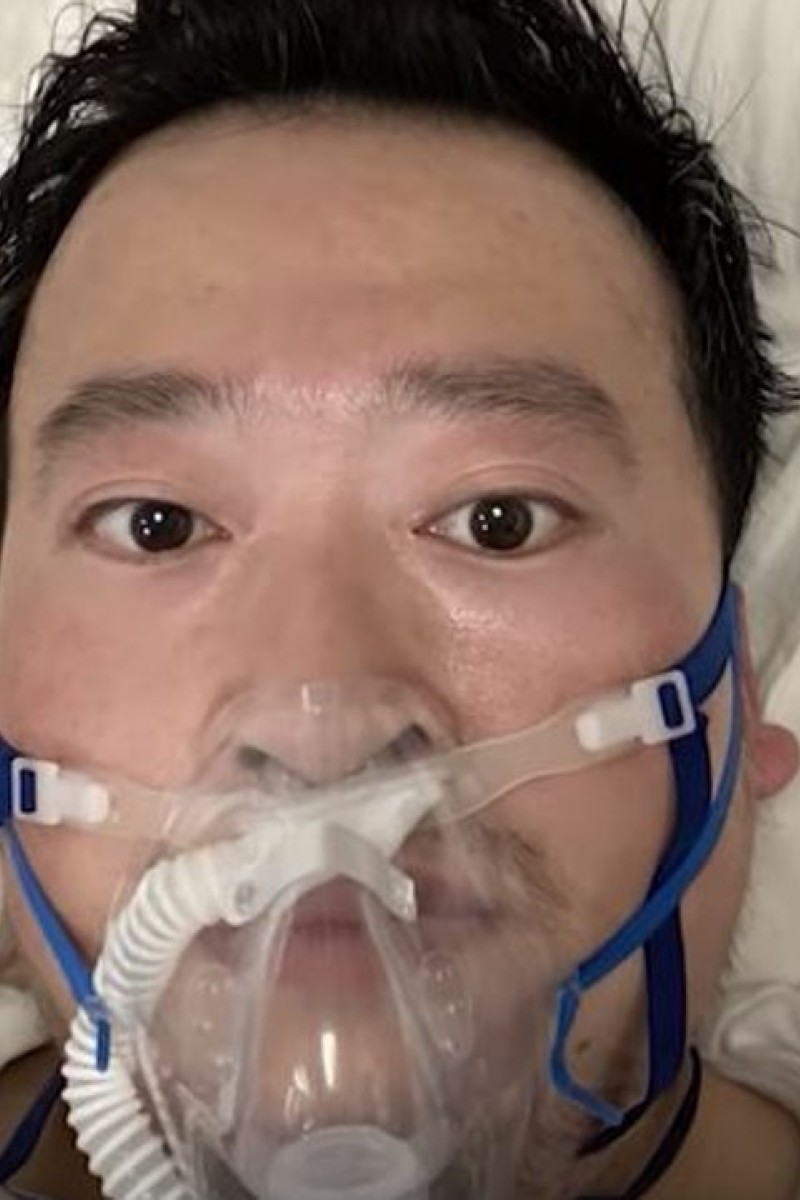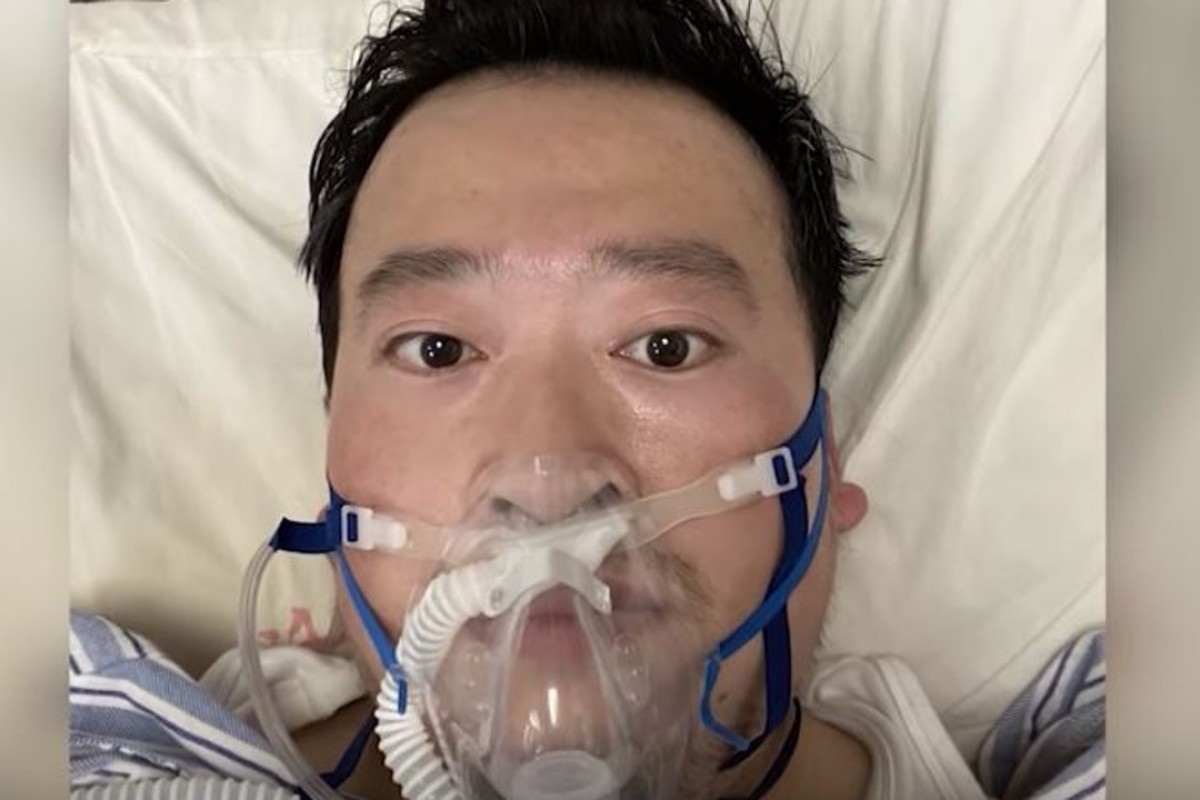
Li was one of the first doctors who tried to share information about the coronavirus, only to be reprimanded by Wuhan police
 Dr Li Wenliang in his hospital bed. He died on Friday at the age of 34.
Dr Li Wenliang in his hospital bed. He died on Friday at the age of 34.After initially denying reports, Wuhan Central Hospital confirmed early Friday morning that Li Wenliang, one of the first doctors who tried to alert the public about the coronavirus outbreak, has died.
“In the fight against the pneumonia epidemic of the new coronavirus infection, our hospital's ophthalmologist, Li Wenliang, was unfortunately infected. He passed away after all the efforts we’ve taken to resuscitate him. We deeply mourn his passing,” the hospital said on its official Weibo account.
A timeline of the Wuhan coronavirus outbreak
Li, 34, died at 2.58am on Friday, the hospital added.
The announcement capped several chaotic hours in which Chinese media first reported Li's death, only for the hospital to respond that Li was alive, though in critical condition.
The earlier reports of Li’s death by multiple Chinese outlets, including Beijing News and Global Times, triggered an outpouring of mourning and tribute both on Chinese social media and at health agencies trying to stem the outbreak.
“We are very sorry to hear the loss of any frontline worker who is committed to care for patients … we should celebrate his life and mourn his death with his colleagues,” said Michael Ryan, director of the World Health Organisation's health emergencies programme, said during a briefing on Thursday.
Coronavirus outbreak: School closures could be extended
Chinese social media has been awash with anger over the death of the whistle-blower – some mourning Li’s death with candles, some demanding that the authorities apologise for the way they had treated him.
“None of the police has ever apologised to you. You could have been a national hero, but the dereliction of duty has claimed your life, along with a few hundred innocent lives,” a user said on Weibo.
“The reprimand of Doctor Li will be a shame in China’s anti-epidemic history. Doctor Li alerted the public at the expense of his life. Wuhan police station still hasn’t recalled that reprimand notice even after his death,” another Weibo user wrote.
On December 30, Li warned his medical school classmates in an online chat group that a Sars-like illness had stricken several patients in a Wuhan hospital and that all of them were quarantined in the emergency department.
The same day that the doctor shared the message, local health authorities announced that the city had confirmed 27 cases of a new type of virus, most of them linked to a seafood market.
EDB announces two plans for postponing HKDSEs amid coronavirus fears
However, Li, along with seven other people who shared information about the outbreak – including at least three doctors – was summoned to the local police and forced to sign a letter promising to make no further disclosures concerning the disease.
In early January, CCTV, a Communist Party mouthpiece, accused the eight people in Wuhan of spreading what the government called “rumours”.
“Cyberspace is by no means a lawless frontier, the police has zero tolerance to any illegal acts of fabricating or spreading rumours that disrupt social order,” the broadcaster warned.
Dry goods fly off shelves as rumours spark panic buying
In a Weibo post discussing how he broke the news and his interactions with the police, Li said he returned to work on January 3 after the police reprimand – but then started to cough on January 10.
“I was feverish on January 11 and was hospitalised the next day. Back then, the government still insisted that there was no human-to-human transmission, and said none of the medical staff had been infected. I was just confused,” Li posted on Weibo on January 31.
Li was found to be infected with the coronavirus on Saturday.
“My virus tests are still negative, but I am having difficulties with breathing, I can barely move. My parents are also hospitalised,” Li said on Weibo a day before he was diagnosed with the infection.